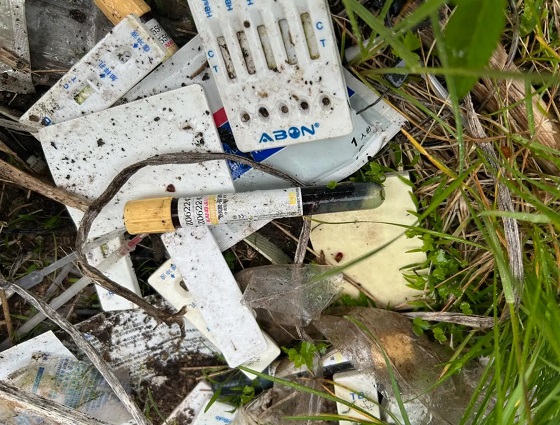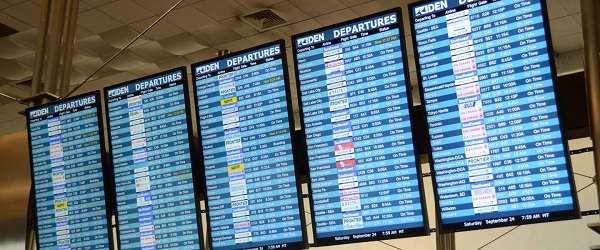Business
Bank of Canada survey reveals 86% of Canadians opposed to creating digital ‘dollar’

From LifeSiteNews
The main findings show that Canadians place a ‘high value on holding cash that is backed by their central bank and want to maintain access to bank notes.’
An overwhelming majority, 86% of Canadians, are opposed to the creation of a national digital dollar and want the government and banks to “leave cash alone,” according to results from a recent Bank of Canada (BOC) survey concerning the creation of a “potential digital Canadian dollar.”
In a press release yesterday, the BOC published the feedback it got concerning the creation of a “potential digital Canadian dollar.” The bank says it has been collecting information since 2020 with “stakeholders in the financial sector and civil society.”
The main findings from the BOC’s survey show that Canadians place a “high value on holding cash that is backed by their central bank and want to maintain access to bank notes.”
“Canadians value their right to privacy and many expressed concerns that a digital dollar could compromise that right,” the BOC said about another main finding from its report.
The BOC noted that should a digital dollar be created, it “should be easily accessible and should neither add barriers nor worsen existing ones.”
“A digital dollar should not add to financial stability risks,” the BOC said.
The survey, which was open from May 8 to June 19, 2023, received 89,423 responses. A total of 87% of respondents said they were “aware” of talk concerning the creation of a digital dollar.
The survey results come after the BOC in August admitted that the creation of a central bank digital currency (CBDC) is not needed as many people rely on “cash” to pay for things. The bank concluded that the introduction of a digital currency would only be feasible if consumers demanded its release.
Canadians prefer cash as the best payment method, but bank has not fully ruled out digital dollar
Some 93% of the BOC’s survey respondents said that they continue to use cash as a payment form in addition to the use of debit and credit cards. A total of 66% of respondents said that having access to a digital currency was not important.
A total of 88% of respondents said they were not interested in the creation of an additional “offline” payment method such as an offline digital dollar in addition to cash.
While 85% of respondents said they would not use a digital dollar, 12% said they would, with 3% being uncertain.
Of important note is that the BOC has not ruled out the creation of a digital dollar despite the report’s findings.
The BOC said it “aims to ensure that Canadians will continue to have the benefits of money issued by the central bank in an increasingly digitalized world.”
“Whether and when a digital dollar will become needed is uncertain. Ultimately, the decision to go ahead with a digital dollar belongs to Canadians, through their representatives in Parliament,” the BOC said.
As reported by LifeSiteNews in May, the BOC was looking for public feedback on whether such a form of digital currency, which experts have warned could mean an end to purchasing anonymity, would be viable for Canadians.
Overall, the report found that when all answers were combined, the creation of a digital dollar garnered 86% negative feedback.
According to the BOC, a CBDC would have to offer “compelling advantages to motivate these consumers – particularly the typical, well-connected consumers who account for most of the market — to adopt and use CBDC at sufficient scale to generate widespread merchant acceptance.”
Digital currencies have been touted as a way by some government officials to replace traditional cash.
As noted in a report from LifeSiteNews, experts warn that central bank digital currencies are a “control tool” of governments.
Conservative leader Pierre Poilievre promised that if he is elected prime minister, he would stop any implementation of a “digital currency” or a compulsory “digital ID” system.
The BOC at the time said that any final decision on when and if a digital Canadian dollar is issued would be up to the government.
Business
Coffee price explosion a self-inflicted wound: Liberal tariff drives up cost of coffee

This article supplied by Troy Media.
Since March 3, Canadian importers have been paying an additional 25 per cent tariff on imported coffee. This counter-tariff, introduced as part of Ottawa’s retaliatory response to a trade dispute triggered by new United States duties on Canadian agricultural exports earlier this year, directly affects a product that isn’t even grown in Canada.
Coffee is up 19 per cent—and global markets aren’t to blame. Ottawa’s political posturing is burning your wallet, one cup at a time
Canadians are paying 19 per cent more for ground coffee this year—and it’s not because of global supply issues. It’s because of a self-inflicted policy
mistake: a 25 per cent tariff imposed by Ottawa on imported coffee, a product Canada doesn’t even grow.
Many consumers may attribute the spike to global market volatility, especially after coffee futures soared to a record high of more than US$4.40 per
pound in February. But that explanation no longer holds—futures have since dropped by more than 30 per cent, yet retail prices remain stubbornly high. So, what’s driving this divergence?
The answer lies, in part, in trade policy.
Since March 3, Canadian importers have been paying an additional 25 per cent tariff on imported coffee.
This counter-tariff, introduced as part of Ottawa’s retaliatory response to a trade dispute triggered by new United States duties on Canadian agricultural exports earlier this year, directly affects a product that isn’t even grown in Canada.
Unlike dairy or poultry, coffee has no domestic farming sector to protect. These tariffs aren’t shielding Canadian producers—they’re punishing
Canadian consumers and businesses.
To grasp the scale of this impact, consider the size of the industry. According to Introspective Market Research, retail coffee sales in Canada total more than $2.7 billion annually and are projected to grow steadily over the next decade. Meanwhile, coffee shops and quick-service restaurants, from Tim Hortons to independent cafés, generate an additional $6.4 billion per year. Tim Hortons alone sells more than five million cups of coffee per day.
This is not a fringe sector; it’s a critical part of both our economy and our culture.
Ironically, the U.S.—our supposed trade adversary in this case—doesn’t grow coffee either. Yet both countries are now entangled in a tariff tug-of-war that serves no practical purpose. The same logic applies to tea, which is also subject to retaliatory measures.
The tariffs were introduced under the Trudeau government in a broader geopolitical strategy that often felt more performative than pragmatic. Trudeau’s combative approach to trade, seemingly crafted on a whiteboard without regard for economic fallout, may have resonated politically, but it ignored basic economic principles. Consumers were never part of the equation.
In contrast, Prime Minister Mark Carney appears to be taking a more measured approach. Tariffs on U.S. alcohol and citrus products remain, but those can be sourced from other markets with relatively little disruption. Coffee and tea, however, are a different matter. There are no alternative domestic sources. The cost of these tariffs is being passed directly to roasters, grocers, restaurants, and ultimately, to the consumer.
Compounding the problem is the volatility of American trade policy under U.S. President Donald Trump, which continues to inject uncertainty into food markets. Tariffs come and go with the political winds, forcing companies to engage in “buffer pricing.” Much like travelers buying insurance for
unpredictable weather, companies build in extra costs to guard against political surprises. It’s effectively a tax on unpredictability, and it’s now embedded in the price Canadians pay at the till.
And while consumers might not feel the same pinch at their local café, where coffee is a smaller fraction of the total cost of a cup, the grocery aisle tells a different story. That’s where the full weight of these policies lands.
Whether a new trade agreement can be reached by the self-imposed July 21 deadline—or a damaging 35 per cent tariff Trump has set for August 1 can be avoided—remains uncertain. But what should be obvious is this: both Canada and the U.S. need to keep essential agri-food imports like coffee and tea out of their geopolitical fights.
Canada has a vibrant coffee ecosystem, built on roasting, innovation and consumer culture, not cultivation. There is no economic rationale for taxing it. Canadians shouldn’t be paying more for their morning brew just to send a symbolic message to Washington.
It’s time Ottawa led by example and scrapped these pointless tariffs.
Dr. Sylvain Charlebois is a Canadian professor and researcher in food distribution and policy. He is senior director of the Agri-Food Analytics Lab at Dalhousie University and co-host of The Food Professor Podcast. He is frequently cited in the media for his insights on food prices, agricultural trends, and the global food supply chain.
Troy Media empowers Canadian community news outlets by providing independent, insightful analysis and commentary. Our mission is to support local media in helping Canadians stay informed and engaged by delivering reliable content that strengthens community connections and deepens understanding across the country.
Automotive
Another sign Canada’s EV mandate is FAILING

By Dan McTeague
While other countries are moving away from EVs, the Carney government is doubling down.
Last week, it was reported that the feds are considering reimbursing car dealerships impacted by the sudden suspension of EV rebates. It’s becoming clear that Canada’s EV ambitions are failing as EV sales are plummeting and car manufacturers are backtracking on their EV plans.
It’s not too late for the Carney government to backdown from its EV mandate.
Dan McTeague explains.
-

 Energy2 days ago
Energy2 days agoIs The Carney Government Making Canadian Energy More “Investible”?
-

 Immigration2 days ago
Immigration2 days agoUnregulated medical procedures? Price Edward Islanders Want Answers After Finding Biomedical Waste From PRC-Linked Monasteries
-

 Business2 days ago
Business2 days agoDemocracy Watchdog Says PM Carney’s “Ethics Screen” Actually “Hides His Participation” In Conflicted Investments
-

 Business2 days ago
Business2 days agoCompetition Bureau is right—Canada should open up competition in the air
-

 Business2 days ago
Business2 days agoIt’s Time To End Canada’s Protectionist Supply Management Regime
-

 COVID-192 days ago
COVID-192 days agoFreedom Convoy leaders’ sentencing hearing to begin July 23 with verdict due in August
-

 Addictions2 days ago
Addictions2 days agoAfter eight years, Canada still lacks long-term data on safer supply
-

 National2 days ago
National2 days agoLiberals push to lower voting age to 16 in federal elections








